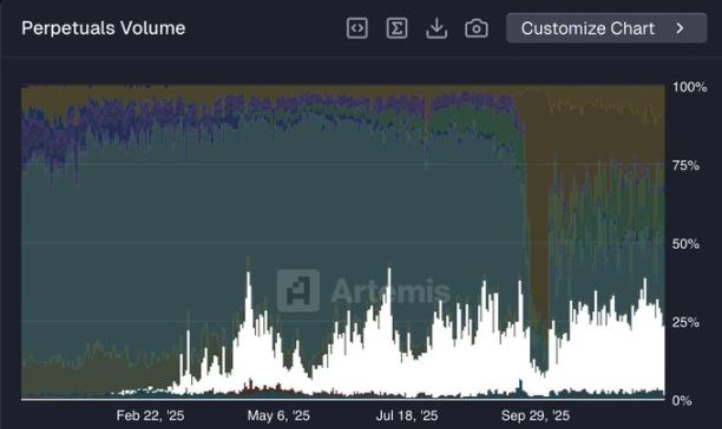Market Manipulation Risks in Small-Cap Biotech Firms Leveraging Crypto Treasury Moves
- Small-cap biotechs exploit crypto treasury moves to inflate stock prices through regulatory arbitrage and speculative hype, raising market manipulation risks. - Pre-announcement surges in firms like ETHZilla and MEI Pharma suggest potential insider trading, with gains often collapsing post-disclosure due to delayed SEC filings. - Executives time trades around retail investor attention, leveraging asymmetric information while regulators lag in oversight, exacerbating ethical and legal gray areas. - Invest
Small-cap biotech firms are increasingly exploiting a volatile intersection of regulatory arbitrage and speculative investor sentiment by pivoting to cryptocurrency treasuries. This strategy, while legally permissible, raises significant concerns about market manipulation, insider leakage, and the ethical implications of leveraging retail investor enthusiasm. Recent cases, such as 180 Life Sciences (now ETHZilla) and MEI Pharma , underscore how these firms amplify stock prices through unannounced crypto moves, often without transparent SEC filings, creating a high-risk environment for investors [1].
Pre-Announcement Surges and the Shadow of Insider Trading
The most alarming pattern is the recurring pre-announcement stock surges observed in companies like MEI Pharma and ETHZilla . For instance, MEI Pharma’s stock nearly doubled before its Litecoin treasury announcement, despite no official updates or filings [2]. Similarly, ETHZilla’s shares tripled following a $350 million Ethereum acquisition, yet the gains were short-lived, eroding 80% of the value within weeks [1]. These surges often occur in the absence of regulatory disclosures, suggesting potential misuse of non-public information. Duke University’s Xu Jiang has noted that such price spikes align with classic insider trading patterns, where early access to material information allows actors to profit before public disclosure [2].
Compounding these concerns is a Virginia Tech study revealing that corporate executives frequently time trades around retail investor attention, selling shares during hype-driven surges and repurchasing when interest wanes [5]. While not illegal, this behavior exploits asymmetric information and raises ethical questions about fairness in capital markets. For investors, the lack of transparency in these transactions—such as delayed SEC filings or vague press releases—creates a fog of uncertainty, making it difficult to distinguish between genuine value creation and speculative hype [3].
Regulatory Arbitrage and the Rise of Digital Asset Treasuries
The broader trend of Digital Asset Treasuries (DAT) has further complicated the landscape. By raising capital to purchase cryptocurrencies, small-cap biotechs exploit regulatory gray areas, particularly in jurisdictions with less stringent oversight of digital assets. For example, Sharps Technology’s $400 million Solana allocation highlights how firms rebrand themselves as “crypto-enabled” to attract speculative capital, even as their core biotech pipelines remain underdeveloped [2]. This strategy has drawn over $15 billion in funding in 2025 alone, surpassing traditional crypto venture capital [1].
However, the absence of robust legal safeguards creates fertile ground for regulatory arbitrage. Companies can selectively disclose crypto-related gains while downplaying financial stress or dilution risks, as seen in the equity offerings by ETHZilla and BitMine [3]. The SEC’s delayed response to these moves—often months after the fact—allows firms to capitalize on market momentum before scrutiny intensifies. This lag exacerbates the risk of market manipulation, as insider actors may exploit the gap between announcements and regulatory action [1].
Strategic Caution for Investors
For investors, the combination of pre-announcement surges, opaque filings, and crypto-linked gains signals a high-risk niche. While firms like aTyr Pharma and MoonLake Immunotherapeutics have legitimate drug development pipelines, their stock volatility is increasingly driven by speculative crypto narratives rather than clinical progress [4]. To mitigate risks, investors should:
1. Hedge against dilution: Avoid companies with frequent equity offerings to fund crypto purchases, as these often lead to price corrections [3].
2. Demand transparency: Scrutinize SEC filings for delayed or incomplete disclosures, which may indicate regulatory arbitrage [5].
3. Diversify exposure: Limit allocations to small-cap biotech-crypto hybrids, given their susceptibility to market sentiment shifts [1].
The convergence of biotech and crypto has created a unique but precarious investment environment. While these moves may temporarily inflate stock prices, the long-term viability of such strategies remains unproven. As regulatory frameworks evolve—such as the U.S. GENIUS Act and EU crypto regulations—investors must remain vigilant against the dual threats of insider leakage and regulatory arbitrage [5].
Source:
[1] Biotechs Turn to Digital Coins, Crypto to Boost Stock Prices [2] Crypto hoarding brings a stock pop for small firms—and in ... [3] Retail Traders Ditch Crypto Holders on Dilution Fear [4] 2 Small-Cap Biotech Stocks Well Positioned for a Breakout [5] New Virginia Tech study reveals how company insiders ...
Disclaimer: The content of this article solely reflects the author's opinion and does not represent the platform in any capacity. This article is not intended to serve as a reference for making investment decisions.
You may also like

With its market share plummeting by 60%, can Hyperliquid make a comeback?

Russia Rules Out Bitcoin Payments "Under Any Circumstances"